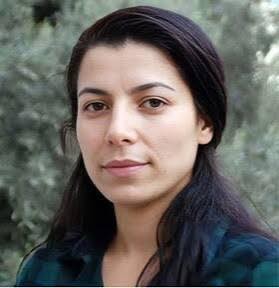We publish below several statements from Iranian feminists.
The first is from Iran’s Feminist Liberation Group.
7 Key Reminders to Our International Allies Regarding the Unfolding Conflict in Iran
1. Prioritise de-escalation
Avoid accounts or narratives that start with slogans like “Iran has the right to self-defence” (often state propaganda) or “Israel will liberate Iran and will not attack civilians” (often Zionist propaganda). Such statements often conceal or justify state violence. Instead, we should always focus on civilians, not states.
2. Recheck your sources
There is an overwhelming amount of misinformation online. Before sharing anything, verify it with reputable media outlets or trusted journalists. Viral posts are not always accurate, even if they are emotionally compelling. Some accounts to follow: @middleeastmatters and @centerforhumanrights
3. Don’t forget the political prisoners.
As news cycles unfold, many people are forgotten. In Iran, countless political prisoners, including those on death row, are in grave danger every day. During the Iran-Iraq War, thousands were executed in 1988 under the pretext of the conflict. Let us not allow history to repeat itself.
4. Avoid idealising any form of state power.
Opposition to one oppressive regime does not imply support for another. All governments must be held accountable, whether it is Israel, the US, Iran or any other state. Authentic anti-imperialism requires consistent questioning of all forms of oppression.
5. Focus on the voices of those directly affected.
Empower those on the front lines – not influencers who appropriate the narrative. Find and support grassroots activists, independent journalists, and people who speak from their own experience.
6. Iranian women and men are trapped between two forms of violence.
Many people in Iran oppose the Islamic regime and at the same time fear foreign military intervention. They do not want to be used as pawns in geopolitical games. True solidarity means supporting their demands for freedom, without military involvement.
7. Do not ignore the other ongoing struggles, especially the struggle against the genocide in Palestine.
While standing in solidarity with Iranian women and men, continue to raise your voices against the atrocities in Palestine, Sudan, Ukraine, and global injustices. These struggles are not in competition with each other, they are intertwined through common systems of oppression, militarism, and state violence. Solidarity must be intersectional.
The second and third statements are from women in the horrendous prison of Evin. Both statements call for the end to war, condemn the Israeli state’s attack on Iran, and at the same time reject the theocratic and authoritarian regime in Iran, responsible for many thousands of deaths of dissidents. THey both put emphasis on the need for grassroots struggle to verthrow the regime, whilst rejecting foreign intervention. Whilst we might have criticisms of the use of certain terms like ‘democracy’ we support the antimilitarism and internationalism of these brave women.
In one of these statements, four political prisoners — Reyhanna Ansari, Sakineh Parvaneh, Verisheh Moradi, and Golrokh Irai — have stated that Iran’s true freedom will only be achieved through widespread resistance and the power of social movements. They have firmly rejected any hope of relying on foreign governments to bring freedom or democracy to the Iranian people and strongly condemn the recent Israeli attacks on Iranian soil resulting in the killing of civilians and destruction of infrastructure. They write: “Our liberation., the liberation of the people of Iran from the dictatorship ruling the country is only possible through the struggle of the masses and by resorting to social forces – not by clinging to foreign powers or placing hopes in them…The powers that have always brought destruction to the countries of the region through exploitation and colonisation, by inciting wars and killing in pursuit of greater benefits, will have no way out for us except for new destruction and exploitation.”
In a separate message, political prisoners Anisha Asadollahi, Nahid Khodabakhashi and Nasrin Javadi have written a letter directly to the people of Iran. They began their letter with a salute to the “oppressed and just-seeking people” and declared: “Wars will never benefit the people.” It’s the people — who had no role in starting these wars — who always pay the price. »
These women political prisoners call themselves “government hostages” who are kept defenceless behind iron doors. However, even from within the prison have expressed their deep concern for people outside, calling for a collective resistance to the war.
Photo: One of the women in Evin prison, Verisheh Moradi.

